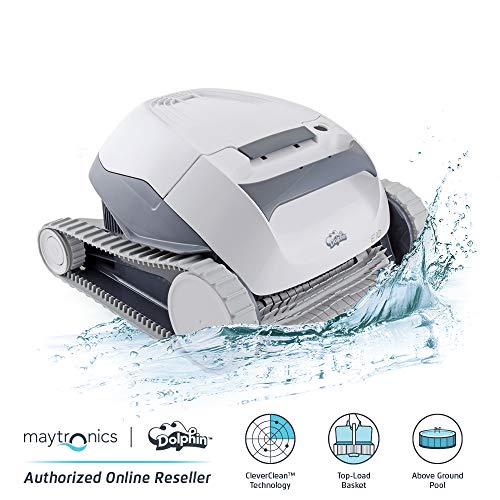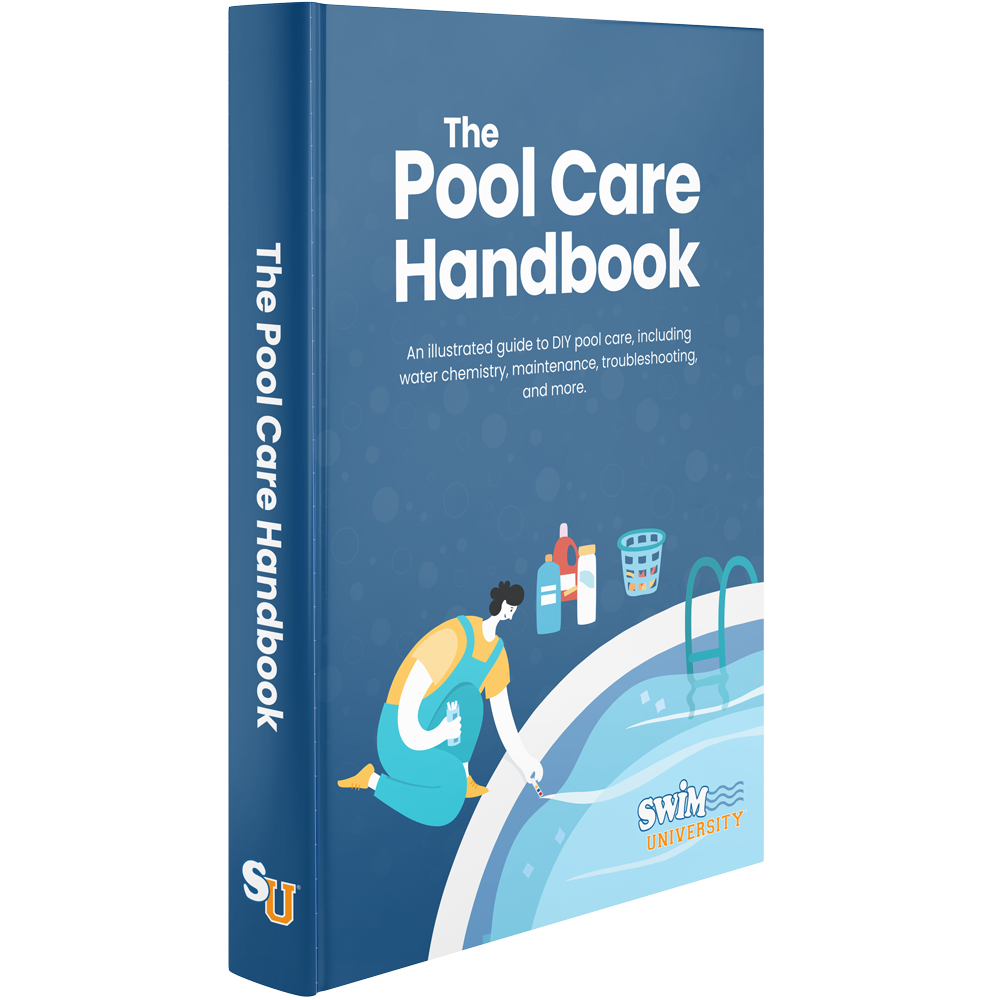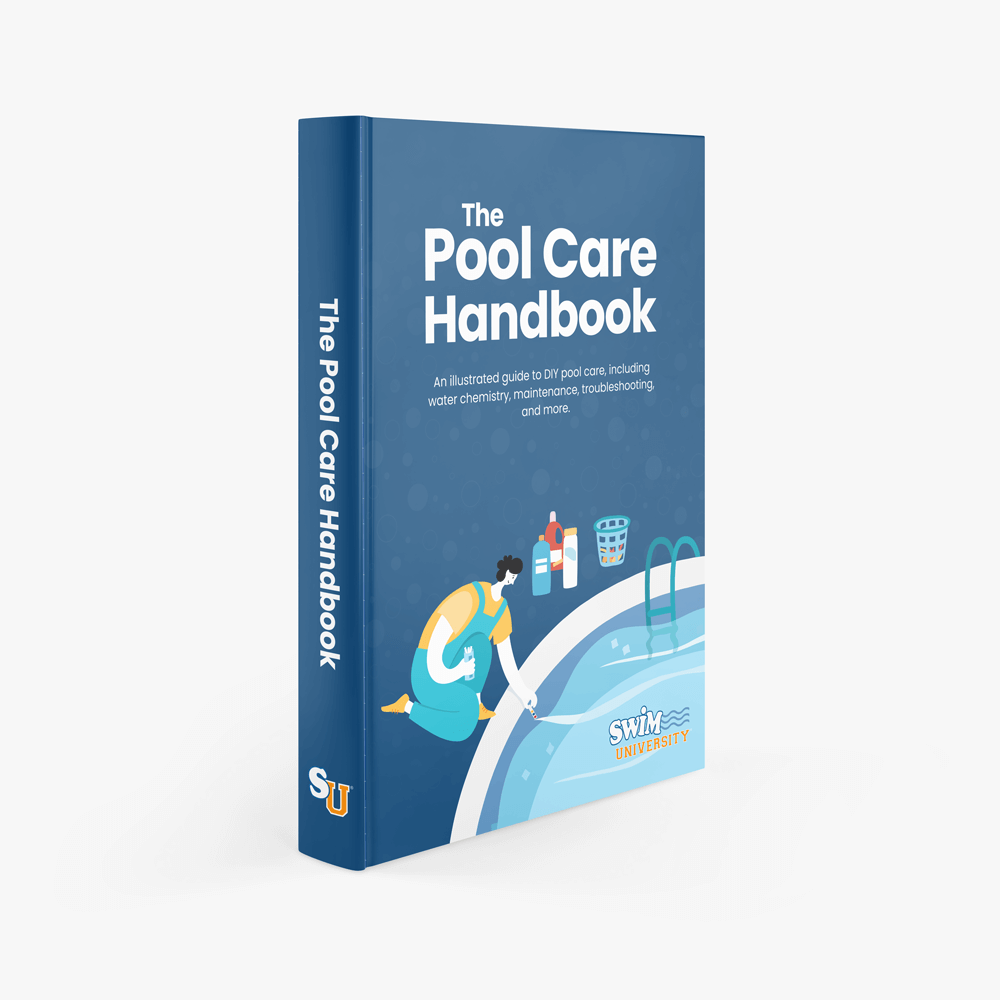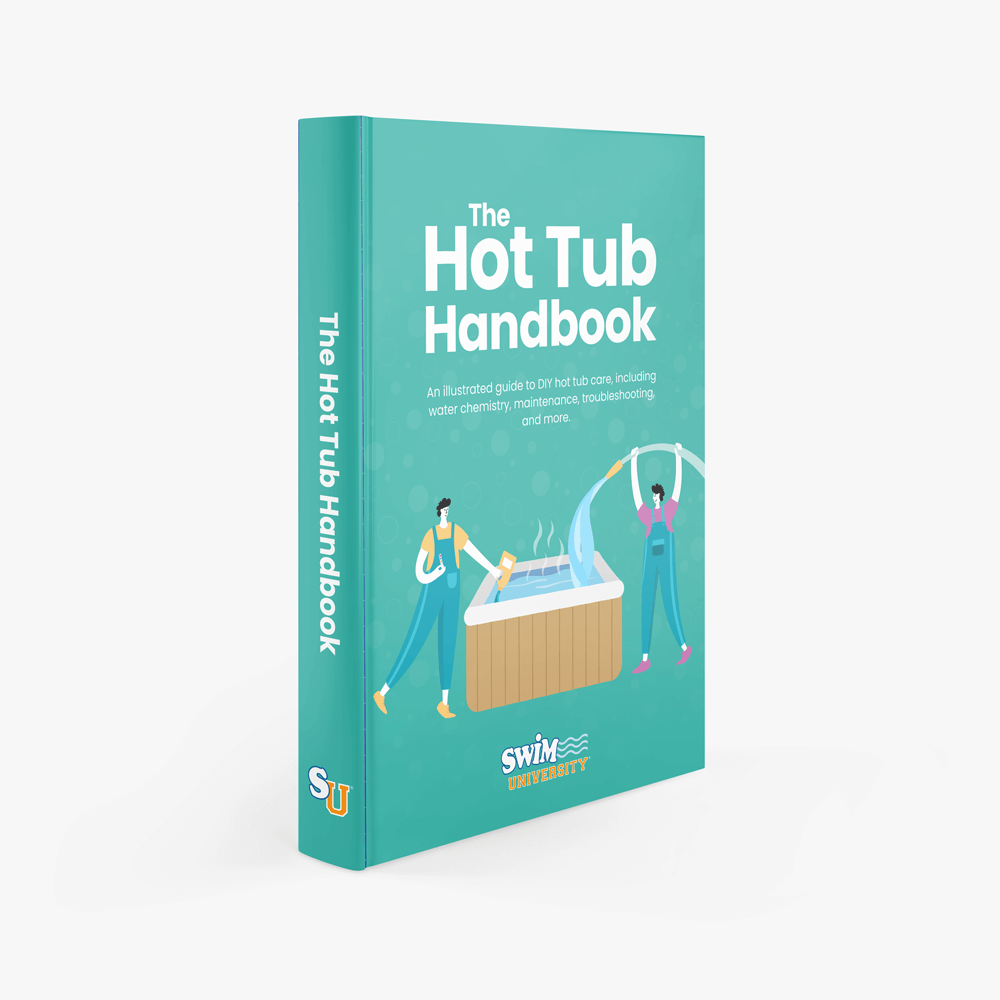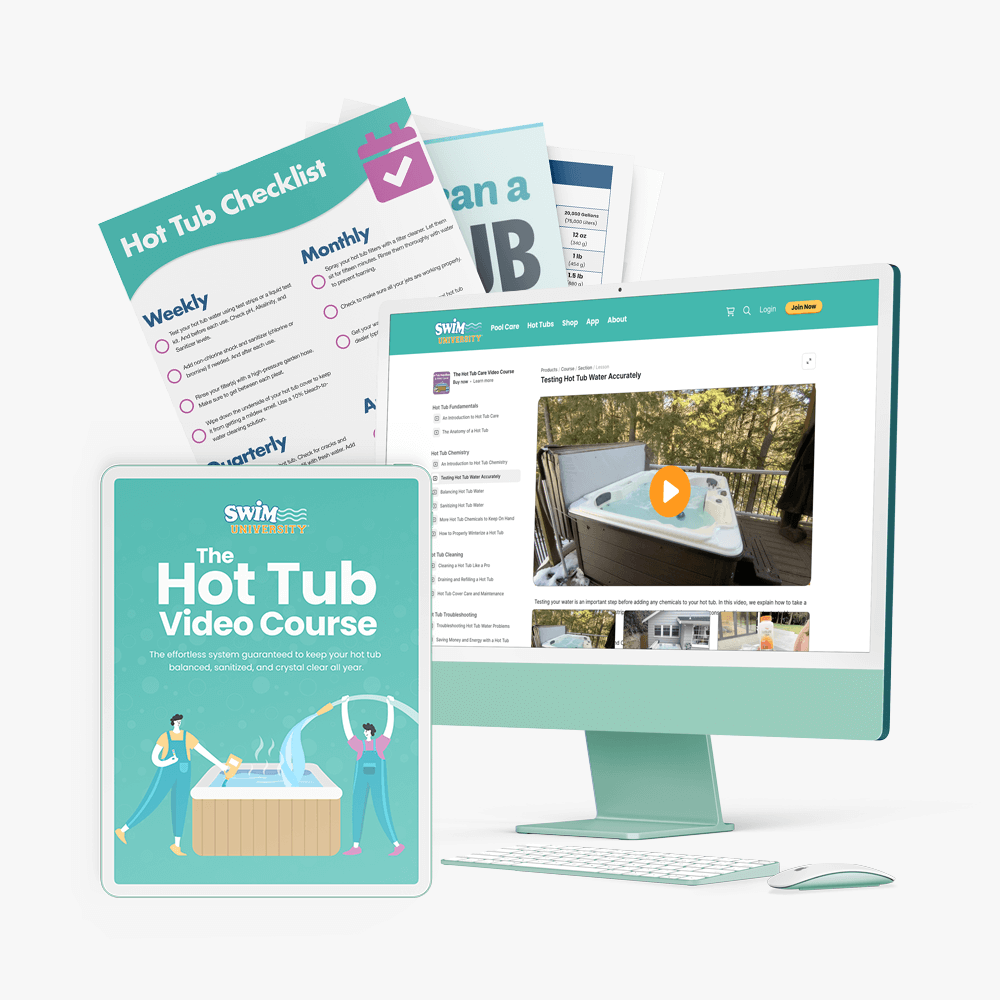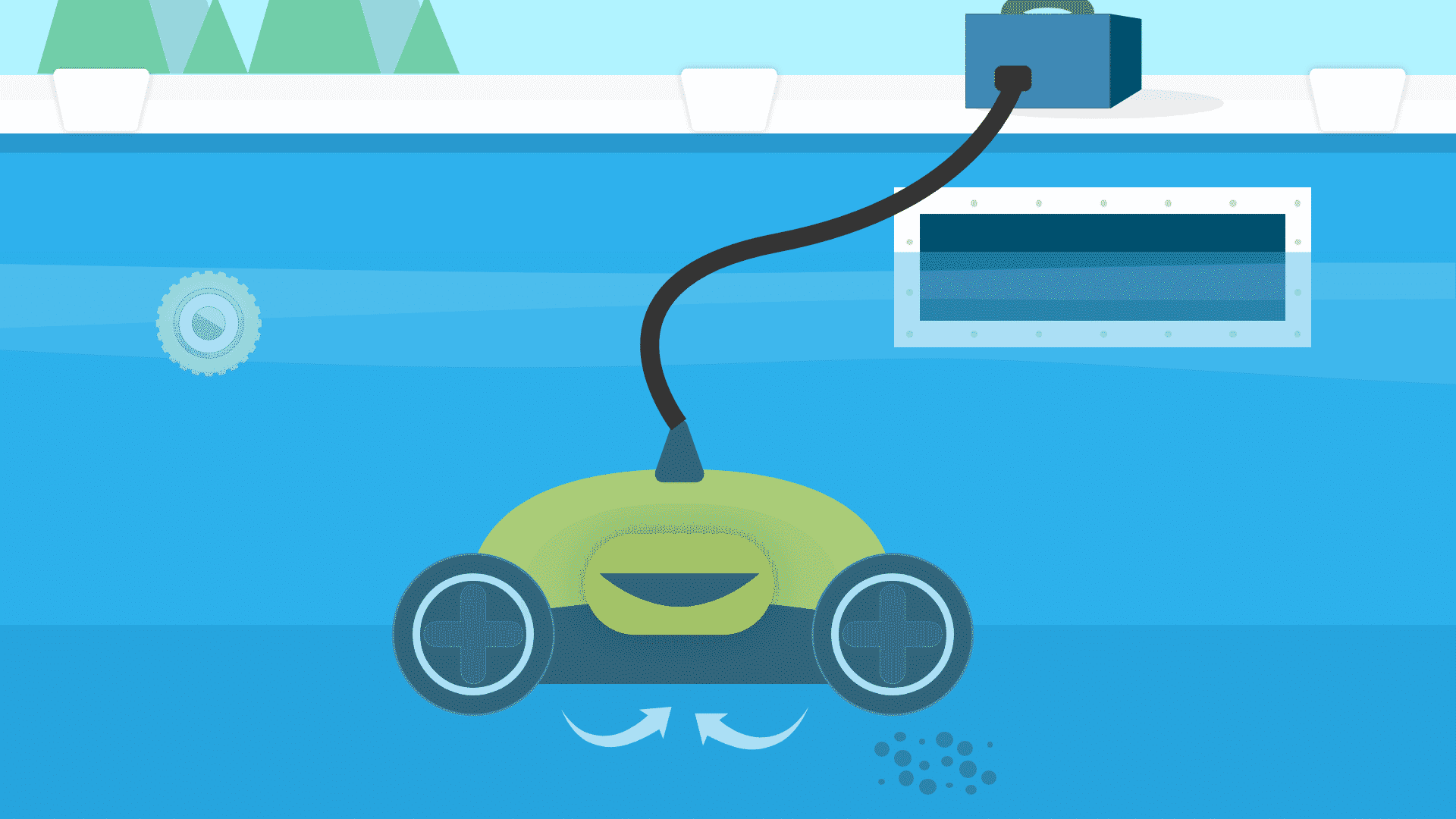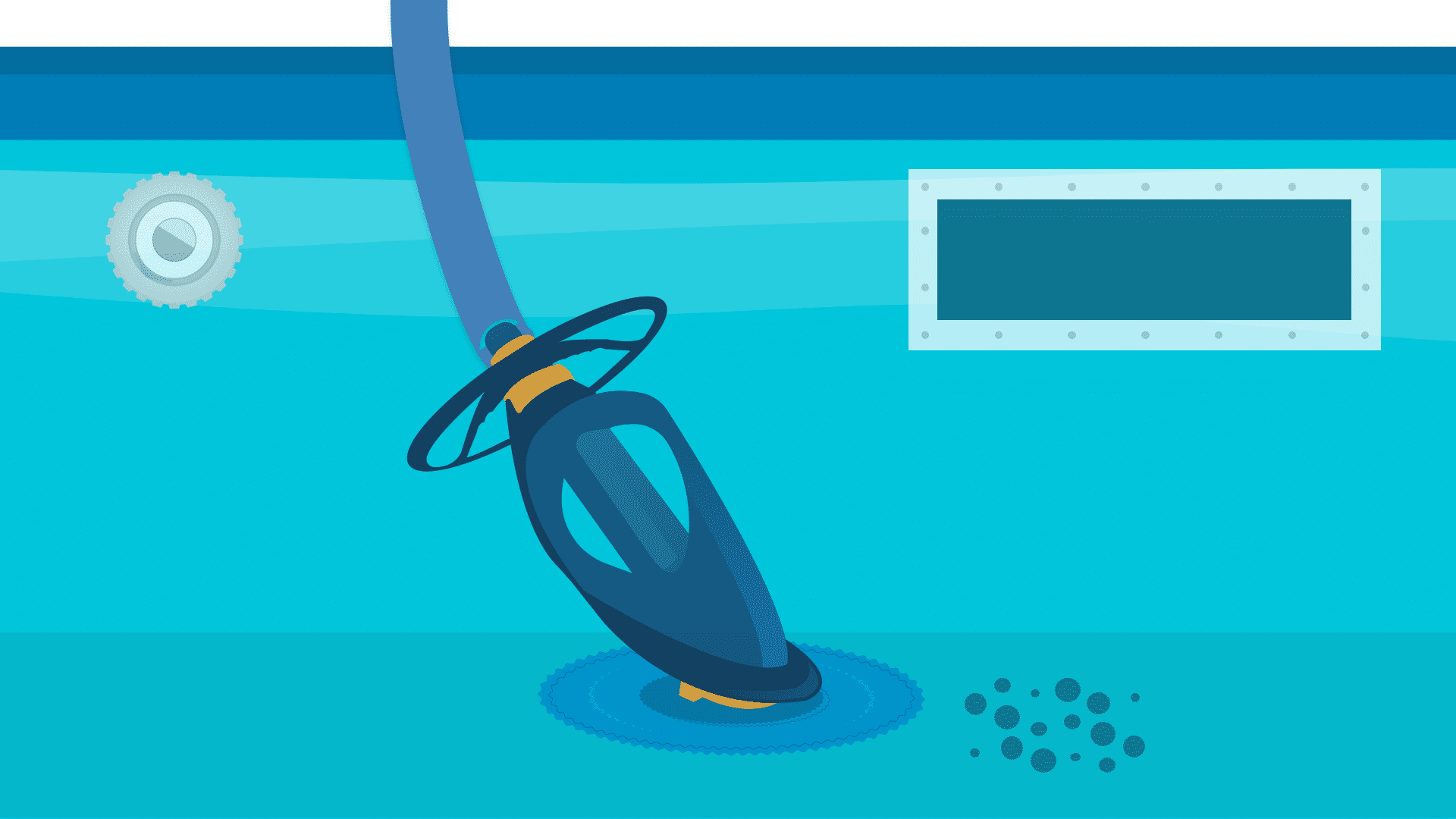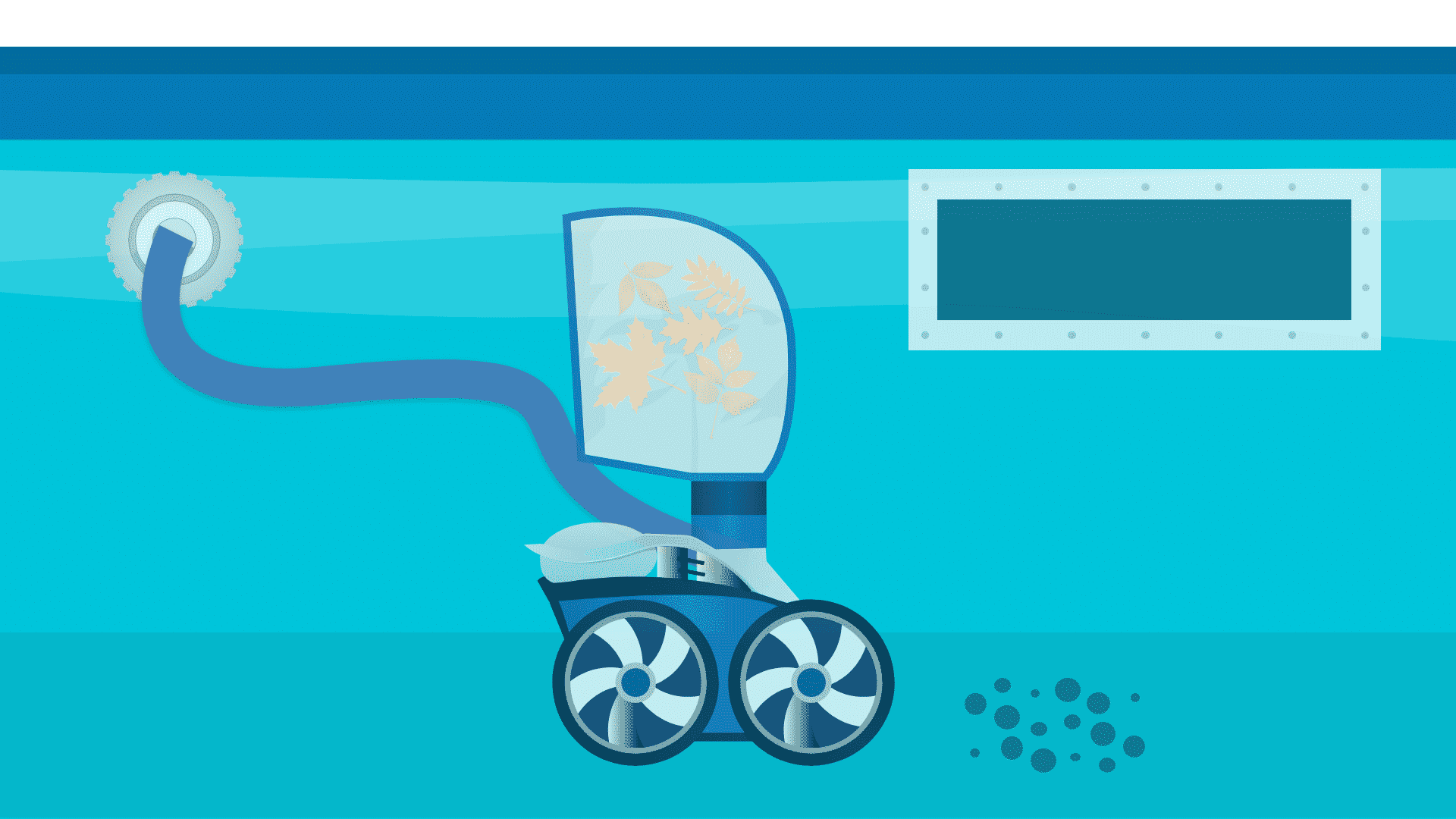The Best Robotic Pool Cleaners in 2025
The best pool cleaner you can get is a robotic pool cleaner. You can’t beat the convenience of simply dropping an automatic cleaner into your pool without running your filter system.
You’ll find a few robotic cleaners for less than $500, but most cost between $500 and $1,000. While the inexpensive models will get the job done, premium models have convenient features like waterline scrubbing, remote controls, and programmable cleaning cycles.
But how do pool owners choose the best robotic pool cleaner? What features do you need to look for? What do you need to know before you buy one?
NOTE: These robotic pool cleaners can be bought on Amazon. All the links are affiliate links, which means that if you click a link and make a purchase, we earn a commission at no additional cost to you.
The Best Robotic Pool Cleaner for Inground Pools
Ideal for pools up to 50 feet. Cleans large pools in just 2 hours. Includes dual scrubbing brushes and a built-in schedule using 3 settings: every day, every other day, or every 3rd day.
This cleaner continues to dominate and remains the king of robotic pool cleaners, in our opinion.
Instead of relying on random patterns to navigate your pool, this robotic cleaner scans your pool to optimize its path around your pool floor and walls.
The Dolphin Nautilus has dual scrubbing brushes, which provide more friction to pick up both large and small debris. It works best in pools up to 50 feet long, and the cord has swiveling technology to keep it from getting tangled. The filters are also simple to remove, empty, rinse, and reload.
The Best Robotic Pool Cleaner for Above Ground Pools
Designed for above ground swimming pools up to 30 feet. It takes less than 2 hours to clean your pool with built-in water filtering and scrubbing.
The Dolphin e10 pool cleaner not only looks cool but is also affordable! It takes all the power of an inground robotic pool cleaner and puts it in a smaller package that’ll clean your entire pool in two hours or less.
And Dolphin cleaners are super energy efficient. The average operating costs are about $0.05 an hour.
This is the ultimate guide to keeping your pool sparkling clean throughout the year that contains everything you need to know about taking care of your pool the right way. Including saltwater pools.
How Does A Robotic Pool Cleaner Work?
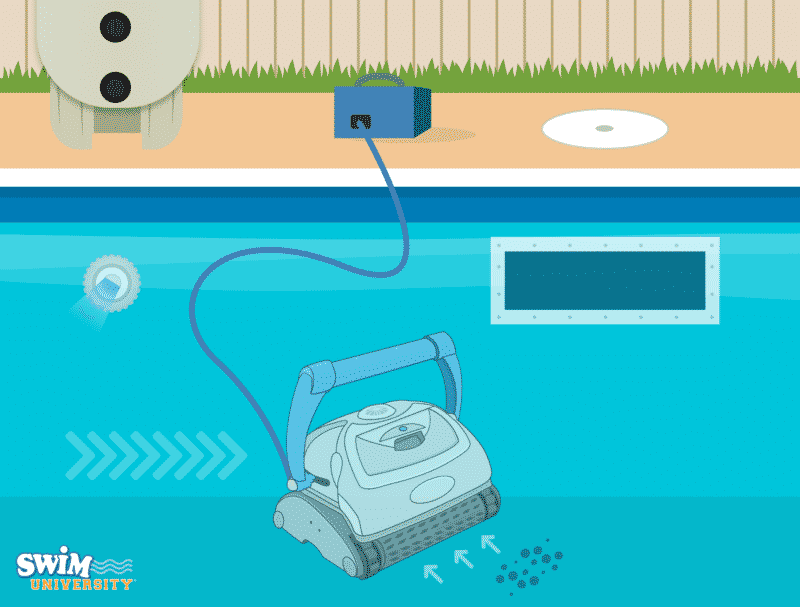
These powerful little machines pick up debris of all sizes. Even better, they don’t attach to your pool circulation system at all, so they don’t rely on your pool filter. They run on good, old electricity. That’s right—you plug them in, and then put them in the water. Sounds counterintuitive, right?
They run on very low voltage, so they’re submersible. Their very long power cords can only be plugged into ground-fault circuit interrupter (GFCI) outlets. GFCI outlets automatically shut off if any electrical imbalance is detected, so you won’t get shocked.
Some models are also “double insulated,” which means they’re designed to work safely without the grounding prong plug. However, for safety’s sake, it’s best to plug those into a GFCI outlet, too.
A robotic pool cleaner drives around your pool, scrubbing the walls and floor with little brushes and vacuuming up everything from silt to acorns. Most models will clean your pool floor and walls, while some can even scrub the waterline around your pool. Because they’re not hooked into your filter system. Robotic cleaners have a filter bag or built-in cartridge for debris collection.
BONUS: Robotic Pool Cleaners also improve water circulation and act as a second filter to your pool. As water is pulled into the cleaner, debris is collected into a bag that can filter the water down to 2 microns for a really clean pool.
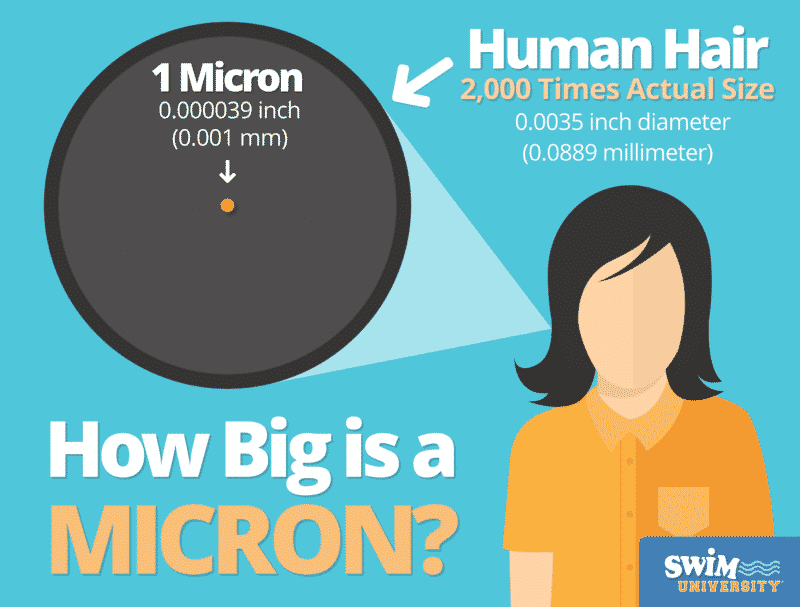
Why Robotic Cleaners Are Better Than Pressure-Side and Suction-Side Pool Cleaners
Suction-Side Pool Cleaners attach to your pool skimmer. It uses the suction of your pump and filter to power the cleaner around your pool and pick up debris from the floor. These are the least expensive of the automatic pool cleaners. But because they rely on your filter system, a lot can go wrong if you’re not around to watch it.
Pressure-Side Pool Cleaners (like a Polaris 360 or Polaris 65) attach to one of the return jets in your pool. They use water pressure from your pump and filter to move the cleaner around your pool. It also creates a water vortex vacuum to pull debris into its own filter bag. This cleaner also relies on your filtration system, but at least it has its own filter bag, so a lot less can go wrong.
Robotic pool cleaners are the best of both cleaners. They clean your pool without the use of your filter system. And they use suction instead of pressure and collect dirt and debris in its own filter bag inside.
If you wanna learn more about all the different types of automatic pool cleaners, when you use them, and which one will work best for your pool, invest in our pool maintenance video course. Not only does it include lessons on automatic pool cleaners, but it’ll also show you how to master pool chemistry, cleaning, and troubleshooting.
The 10 Best Features to Look For in a Robotic Pool Cleaner
1. Lightweight
While the size of a pool cleaner doesn’t matter, the weight does. Sure, the bigger the pool the bigger the robot, but you need to make sure you can lift it to get it in and out of the pool. If the pool cleaner is too heavy, you’ll have a hard time caring for it—and your pool—without a little help.
2. Wide Tires and Four Wheel Drive
No, you won’t be taking it off-roading. But a pool cleaner can’t do its job if it can’t get around your pool. We recommend four-wheel drive and wide tires made of rubber—not plastic—so the cleaner can easily get over bumps and won’t have any trouble navigating slippery surfaces along the sides and bottom of your pool.
3. Swivel Cord
Unfortunately, you can’t escape the need for cords with a pool cleaner. Because it’ll be moving around your pool and climbing vertical walls and even stairs, the cord can easily tangle, keeping the cleaner from moving. A swivel cord can help prevent tangles and give your robotic pool cleaner the freedom of movement it needs.
4. High-Quality Brushes
Removing the dirt and debris from your pool is hard work, and pool cleaners accomplish it with brushes. We recommend hard-bristle brushes or rotating rubber brushes that can scrub dirt from almost any surface in your pool.
5. Programmable Timer
The whole point of a pool cleaner is to make your life easier. If you have to go out and start it every time you want it to run, it takes away the automation and ease of use. The best cleaners come with programmable timers so you can set it and forget it. Just don’t forget to clean it out once in awhile. Even a cleaner needs to be cleaned!
6. Climbing Ability
Ideally, you want a robotic pool cleaner that’s good at climbing. The best ones can easily climb the sides of your pool, clean the waterline, and even climb your pool’s stairs (if you have them) to do a thorough job.
7. Deflecting Features and Sensors
One of the most frustrating things about robotic pool cleaners is that they can get stuck in corners from time to time. Some of them come with deflecting features that help prevent the robot from getting stuck in a corner or on other obstacles.
8. Efficient Pool Cleaning Cycles
Every pool cleaner has a different pool cleaning cycle, with some lasting longer than others. Ideally, you want one that can clean your pool as quickly and efficiently as possible while still doing a good job. Some cleaners come with multiple cycles for different levels of pool cleaning.
9. Durability
Pool cleaners can be expensive, so you’ll want one made from high-quality materials that will last. Eventually, you may have to repair it, but you shouldn’t need to do that for at least a few swimming seasons. Read your warranty before using your cleaner so you know what to do if it fails.
10. Energy Efficiency
The size of your pool cleaner will determine how much energy it uses. You can expect smaller cleaners to consume around 200 watts of power per hour. Larger units will use more, but try to avoid models that use more than 1,000 watts per hour as they’ll cost more to operate over time.
How to Use a Robotic Pool Vacuum
- After assembling your cleaner, plug it into a GFCI outlet.
- Select your preferred pool cleaning settings. These options will vary by model, but some common modes include Bottom Only and Waterline Only.
- Bring your robotic cleaner to the halfway point of your pool length to reduce cable tangling.
- Submerge the cleaner, gently shifting it from side to side, allowing all air to escape.
- Turn on your pool cleaner, and let it sink to the bottom of the pool. Important: Do not turn your cleaner on before submerging it as it can damage the machine. Also, remember to turn it off before removing it from the water.
- During its first wall-cleaning cycle, watch to be sure your cleaner is able to fully climb your pool walls. If not, you’ll need to make adjustments per the manufacturer’s suggestions.
- Always remove your cleaner after it’s finished working. Lift it from the pool, allowing all the water to drain out before storing it.
How Long Do Robotic Pool Cleaners Last?
Once you find the best pool cleaner for you, make sure to take good care of it. It’s the only way to avoid an eventual robot uprising. Oh, wait—different kind of robot.
But taking care of your machine will keep it running well so it can do its job for a good, long time. Always read any instructions that come with the device before you let it loose in your pool. At the very least, perform some general care to keep it functioning well.
- Take the cleaner out of your pool once its cycle is complete. It’ll help preserve the motor and make your pool a safer place to swim.
- Drain the cleaner of water according to manufacturer instructions.
- Wash your pool cleaner after every use. That means checking the brushes and wheels for debris as well as emptying and rinsing the filter.
- Keep an eye on the wear of your brushes, and replace them when they get worn down. Think of it as getting a new toothbrush for your swimming pool.
- Store your cleaner out of direct sunlight.
- If you notice the cord becomes kinked over time, wrap it in the opposite direction than you usually do when storing.
- Replace worn brushes promptly to ensure optimal cleaning power.
Caring for your cleaner doesn’t have to be hard. Some minor maintenance pales in comparison to the hours of cleaning it’ll save you.
Robotic Pool Cleaner Troubleshooting Tips
- Any type of issue: First check that it’s plugged in tightly, and that the power cord has no damage.
- If the cleaner gets stuck: Check the brushes, drive tracks, and impellers for lodged debris.
- If your machine doesn’t seem to be moving properly: Lift it partially out of the water to see whether the unit is sucking water as it should. If it’s not, you may need to have it professionally repaired (one of the few times in life you’ll need to fix something because it doesn’t suck).
Are Robotic Pool Cleaners Worth It?
Bottom Line: Yes! Robotic pool cleaners are 100% worth the investment. It’ll be the best money you ever spent on your swimming pool.
Any automatic swimming pool cleaner should be able to clean your pool within about three hours, depending on its size. Routine maintenance, such as keeping filters clean and valve settings optimized, can significantly affect its performance.
Even if you check every element of your cleaner after every use, the time and work involved in keeping it in tip-top shape will be insignificant compared to the time you’re currently spending bent over your poolside, scrubbing with a brush.
The only thing you’ve got to lose by investing in an automatic pool cleaner is that pain in your back.
4 Ways We Can Help With Your Pool
- Pool Care Cheat Sheets (Free): Easy-to-use downloadable guides to help you keep track of taking care of your pool this year.
- The Pool Care Handbook: An illustrated guide to DIY pool care, including water chemistry, maintenance, troubleshooting, and more.
- The Pool Care Video Course: You’ll get 30+ step-by-step videos and a downloadable guide with everything you need to know about pool maintenance.
- The Pool Care App: Enter your water test results. Get a custom treatment plan. Know exactly what chemicals to add to keep your pool clear.


